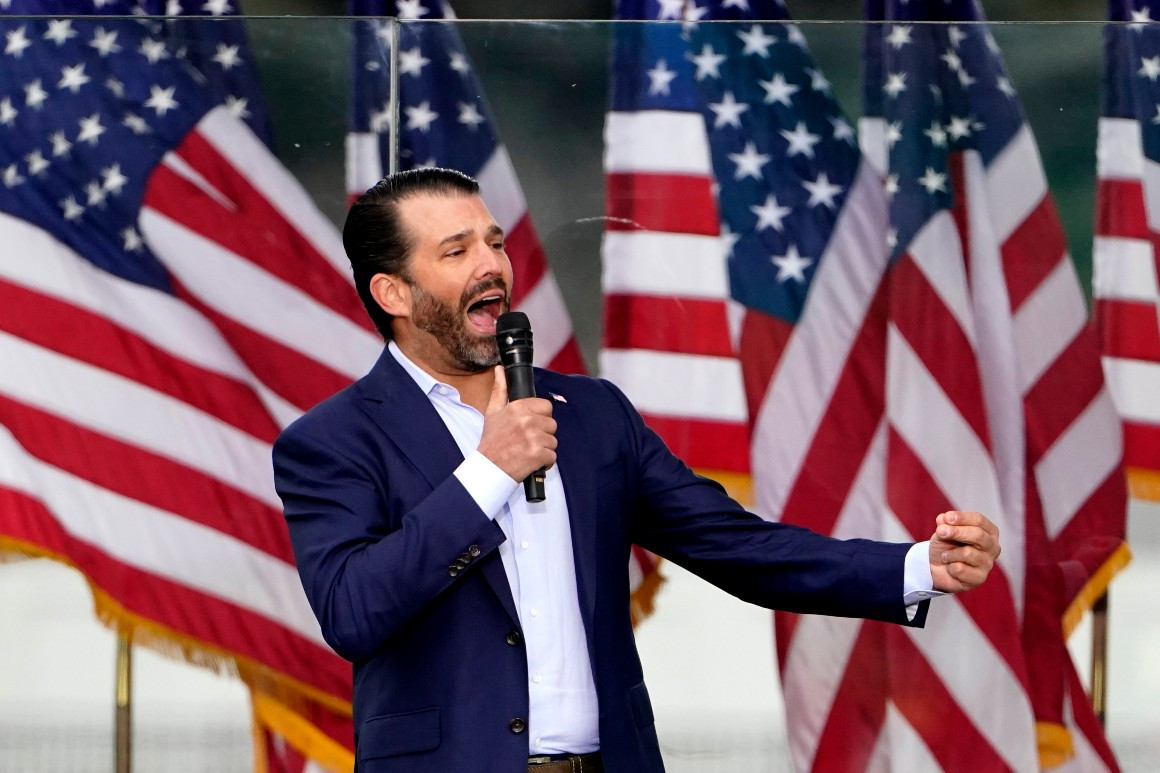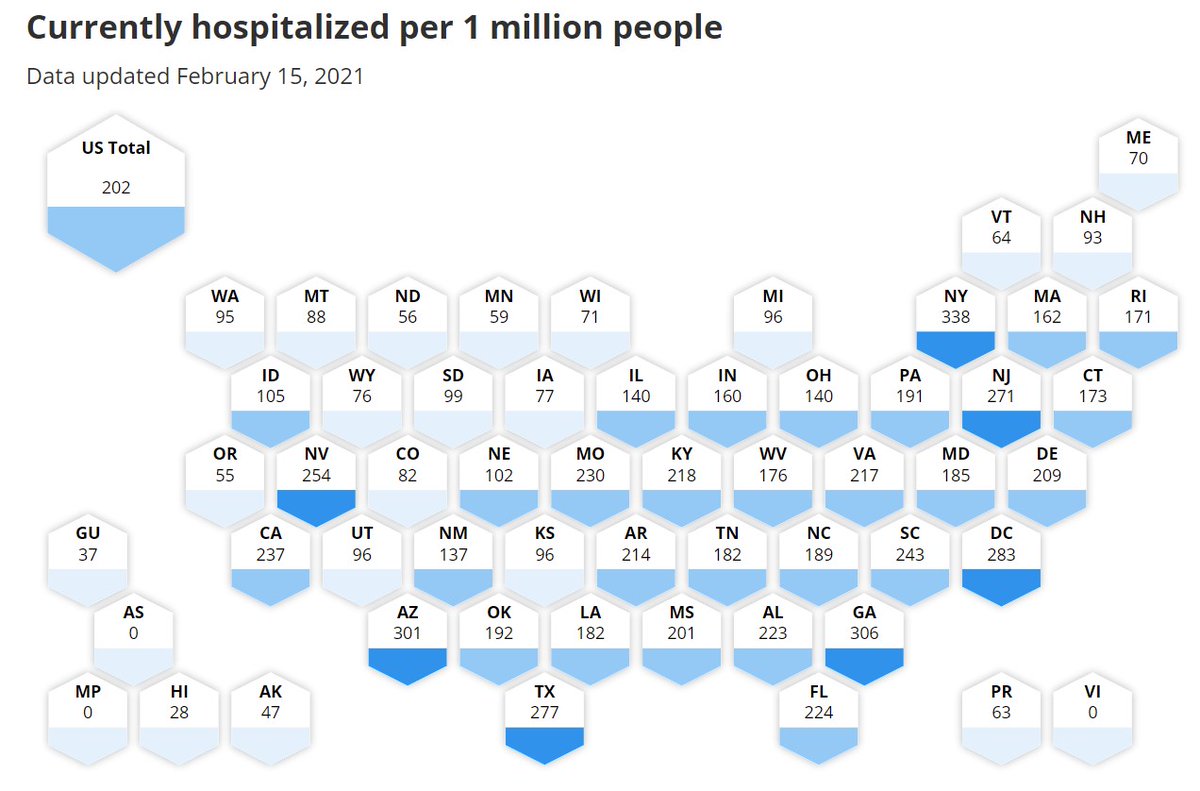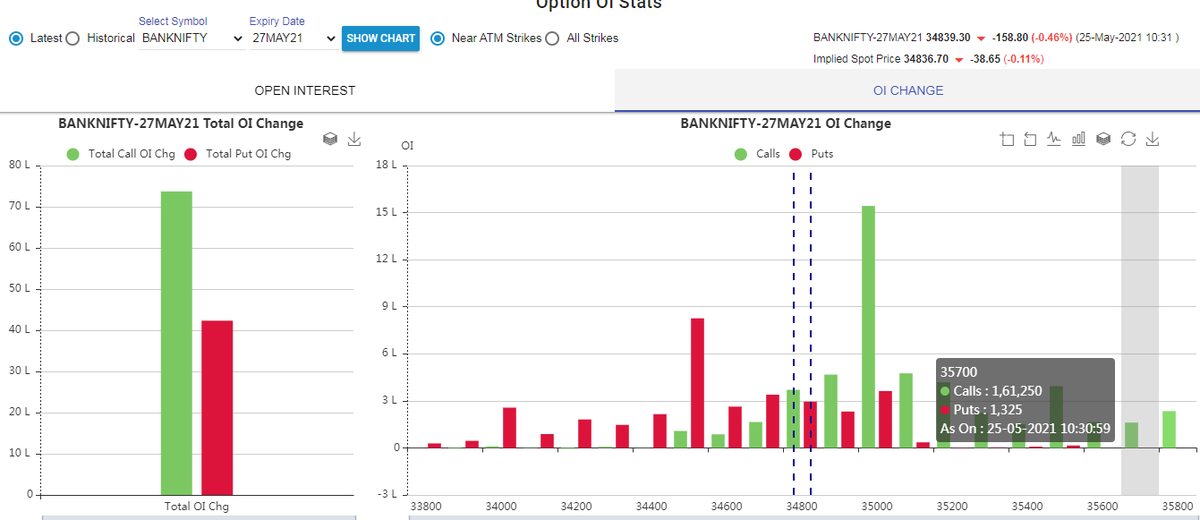1/ First, many don't realize that while the name of the *rally* was "Stop the Steal," Trump spoke flanked by banners that read "Save America March"—Save America being the PAC Trump has used since the election to scam voters out of more than $300 million for "election defense."
2/ It appears, therefore, that the link between Trump, his opposition to Biden's January 6 certification in Congress, and the insurrectionist march on the Capitol is one that comes, incredibly, with a paper trail—as it appears Trump *paid for* the seditious "Save America March."
3/ Seconds into his speech, Trump says, "These people are not going to take it any longer. They're not going to take it any longer...They came from all over our country. I just really want to see what they do." It's an astonishing admission he thinks something is going to happen.
4/ Trump then seems to catch himself, repeating the phrase "I just really want to see" but now adding "how they [media] cover it [the Save America March]." It's hard to know, therefore—perhaps deliberately—whether "what they do" means "what media does" or "what the marchers do."
5/ He then falsely says "media and Big Tech" together "rigged" the November 2020 election *and* the Georgia run-off, suggesting—in the context of past Trump remarks—that a combination of pre-vote polling and post-vote vote-manipulation explains GOP losses in those two elections.
6/ "All of us here today do not want to see our election victory stolen by emboldened radical Left Democrats, which is what they're doing, and stolen by the fake news media, that's what they've done and what they're doing. We will never give up." The verb tenses here are *key*.
7/ Remember, Trump excitedly tweeted about this event on December 19—the day it was moved to January 6. Trump scheduled his speech for an hour before the election certification was due to start. His words were *timed* to coincide with the "Save America March" he was paying for.
8/ So when Trump speaks in the present tense of the election being "stolen" by Democrats and the media—it's "what they're doing"—he means it literally: he's telling the "Save America March" that he and they are *imminently* facing a "stolen election" due to events at the Capitol.
9/ He then switches to the future tense: "We will never give up. We will never concede." He's directing the Save America March he paid for, which he'll shortly launch at the Capitol explicitly, to future conduct that'll encapsulate a shared commitment not to "give up or concede."
10/ "You don't concede when there's theft involved." He's telling the crowd that they *can't* do anything but march on the Capitol (as he will shortly tell them to do), and that they *must* not do anything on January 6 that would "concede" to the vote taking place at the Capitol.
11/ Trump clearly sees the crowd as an army. He crows about the size of the crowd, claiming it is "hundreds of thousands" strong. That's important for his "mens rea" (mental state) as a criminal actor: he believes he's commanding the actions of a *massive* force near the Capitol.
12/ "Our country has had enough. We *will not* take it *any more*. And that's what this [the Save America March] is all about." Trump is *unambiguously* tying his speech to the March, and the March to a dramatic action—not a metaphor or merely symbolic one—that's about to happen.
13/ "And to use a favorite term that all of you really came up with, we will 'Stop the Steal.'" Trump connects the march to the rhetoric of Ali Alexander—who we now know coordinated the "Stop the Steal" march on the Capitol with Trump Congressional allies Gosar, Biggs and Brooks.
14/ In fact, "Stop the Steal" was not a grassroots slogan, but was created by Ali Alexander in conjunction with Trump's allies, one of whom (Mo Brooks) had just spoken before Trump, exhorting the crowd to start "kicking ass." But we also must consider the word "stop." It matters.
15/ The action Trump is demanding isn't a "protest"-type action. It's not a let-your-voice-be-heard action. It is *explicitly* an *intervention*—the "steal" will be "stopped" by the assembled army marching on the Capitol as Trump will shortly direct them. There's no fuzz on this.
16/ Trump says he'll "prove" he won the election in a "landslide." He cites the "real pollsters"—presumably he means internal ones he paid for—who assured him he'd win if he got a certain number of votes. It confirms the media "theft" he refers to has to do with polling/coverage.
17/ Trump says Biden didn't get 80 million votes, he got "80 million computer votes"—thus returning to his "media and Big Tech stole the election" theme by implying that the big tech companies he's been fighting with somehow helped rigged the vote tabulation via criminal hacking.
18/ He calls the hacking—which he now takes as a given—a "disgrace," says nothing like it has happened before, and notes that it wouldn't even happen in "third-world countries." He makes clear he's referring to *both* the White House loss (November) and Senate loss (January 5).
19/ "We will not let them silence your voices." Interestingly, he is focusing (with "them") as much on media and big tech as on Democrats, which certainly helps explain the attacks on *journalists*—and their equipment—that accompanied the insurrection that would begin soon after.
20/ "We're not going to let it happen. Not going to let it happen." Pronouns matter here. Trump repeatedly says "we"—over and over in his speech, he puts himself in the midst of his army. It matters because he shortly will *falsely* say "we" are going to march on the Capitol now.
21/ Media reports confirm Trump was told *days* before the Save America March that he couldn't accompany the rally-goers to the Capitol. So his "we" is consistently rhetorical: he is strengthening his army's backbone to do the unthinkable by deceitfully saying he'll go with them.
22/ Trump now—for the first time—lets his speech be interrupted by an extended chant from his army, and it's because it's a chant he approves of and that matches what he wants: "FIGHT FOR TRUMP! FIGHT FOR TRUMP! FIGHT FOR TRUMP!" He grimly soaks it in, letting it carry on awhile.
23/ I just want to pause here to say that, knowing what we know now—5 dead; 50+ injuries; looting; countless assaults; a hostage plot; guns and bombs; an officer crushed in a door; shots fired; elected officials hiding—it is *really* terrifying to watch what Trump is doing here.
24/ "If those tens of thousands of people would be allowed—the military, the Secret Service, the police, law enforcement, you're doing a great job—but I'd love it if they could be allowed to come up here with us. Is that possible? Can you just let them come up please?" Uh...what?
25/ This is—beyond any doubt—the strangest line in the speech. When he says "come up here with us" he *couldn't* be referring to the stage he's standing on, as he says he's referring to "tens of thousands" of military people and cops. So where does he want them to "come up" *to*?
26/ The obvious answer—indeed, the *only* answer—is that, as he's about to reveal, he is *well aware* (and was pre-speech) that the Save America March he paid for is a march on the Capitol to "stop" the certification, and that "we"/"us" will be making that march. And therefore...
27/ ...he is asking "the military, the Secret Service, the police, [and] law enforcement" (his words) to march with "us" to the Capitol. Given the historic security failure we'll ultimately see at the Capitol, and DoD refusing to release the Guard, and Trump refusing to do so...
28/ ...this line in the speech will naturally cause federal investigators to wonder if elements of Team Trump had been in contact with Capitol Police and (far more likely) Trump's stooges at DoD about his plan to march on the Capitol. But it gets even worse than this, I'm afraid.
29/ We now know from several major media reports that Trump wanted to *increase* the military presence at his Save America March as a way to "stop antifa." Seems... odd, right? There was no intelligence about antifa showing up to his Save America March, only far-right extremists.
30/ So why would Trump want *more* military? Well: "If those tens of thousands of people would be allowed—the military, the Secret Service, the police, law enforcement—I'd love it if they could be allowed to come up here with us. Is that possible? Can you just let them come up?"
31/ Every indication here—I know it seems incredible, but realize how deranged Trump became post-election—is that Trump wanted the ranks of his army to be swelled by *actual military* and *armed law enforcement* before his army marched on the Capitol. This is a *full-blown coup*.
32/ Had Trump's army been joined by soldiers and cops, its ability to access the Capitol would've been assured.
There's simply *no other logical explanation* for what Trump says here other than that he wants soldiers and cops to "come up [to the Capitol] with us"—and imminently.
33/ Oddly, he switches from this thought directly to "And Rudy you did a great job. He's got guts. Unlike a lot of people in the Republican Party." Remember, Rudy had just publicly demanded "trial by combat." Why did Trump address *Rudy* immediately after addressing the military?
34/ That Trump is thinking about what Rudy just said on-stage is made clear by his next words, which both (a) paraphrase Rudy's exhortation, and (b) directly reference the fact that Rudy just spoke. Of Rudy he now says, "He's got guts. He fights....that's a tough act to follow.:"
35/ This is way too deep a dive for this thread, but I must say—because I wrote three books about Rudy—that investigators will want to look into whether Rudy was in touch with Kash Patel at DoD about the march, and whether that's why Trump strangely connects Rudy to the military.
36/ What we know for sure is Rudy helped coordinate the insurrection, making calls to the Capitol in mid-coup to try to get Trump's allies to artificially elongate the vote—which would've given rioters more time to breach the House/Senate chambers. But who else did Rudy speak to?
37/ I mention the Giuliani-Kash Patel connection because the two men secretly worked together as part of the "BLT Prime" team that tried to help Trump shake down the Ukrainian president during the Ukraine scandal. (Events discussed in detail in my 2020 book Proof of Corruption.)
38/ In discussing Rudy Giuliani, Trump in his speech also introduces another figure, John Eastman, who had spoken before him. Eastman is the law professor infamous for falsely claiming that Kamala Harris was not eligible to serve as VP because of the circumstances of her birth.
39/ Trump uses Eastman as a segue to discussing Pence, noting that Eastman had told him what was happening (the "theft") was incredible. Trump says, "I hope Mike Pence will do the right thing." Note that Pence had *already told Trump* he'd *not* be interrupting the certification.
40/ "Because if Mike Pence does the right thing, we'll win the election. All he has to do—this is from one of the top constitutional lawyers in our country [Eastman]—he has the absolute right to do it, he's supposed to protect our country, support our country, support our...
41/ "...Constitution and protect our Constitution. States want to revote–the states got defrauded. They were given false information. They voted on it. Now they want to re-certify. They want it back. All Vice President Pence has to do is send it back to the states to re-certify."
42/ "...And we become president and you are the happiest people." Trump is falsely building up hope about what Mike Pence can do and will do, and he *knows* it. And this very incitement is why the crowd chants "Hang Mike Pence!" at the Capitol and then starts *hunting* him there.
43/ "I just spoke to Mike [Pence] and I said, 'That doesn't take courage, what takes courage is to do *nothing*.'"
I have to unpack this, because it is an *extraordinary* threat against the Vice President that *many* people will miss.
Do folks realize what Trump is saying here?
44/ Trump is telling the crowd he threatened Pence. He's telling them—an army he's about to send to the building Pence is in—that he told Pence that if he does *nothing* to help Trump win it's that act that shows courage. Why? Because Trump is saying Pence is endangering himself.
45/ And Trump is *right*. As within an hour, Pence is being evacuated from the House chamber, crowds are chanting for his death, armed invaders are hunting him in the hallways of the Capitol. These events were foreseen and expected by Trump when he—apparently—threatened his VP.
46/ This is consistent with all the major-media reporting, which tells us that Trump had been treating Pence "horribly," tried to "order him" to complete a "coup," told him he "didn't want to be his friend, he wanted Pence to be his VP," and that Pence was *livid* at the Capitol.
47/ It's clear Pence feels Trump was trying to stir violence against him—and thus his family, which was with him in the Capitol. This is why this Trump speech is perhaps the sickest speech ever given by any American president. No wonder the two men haven't spoken since Wednesday.
48/ "We're just not gonna let that happen." Trump is referring to... incredibly... Biden being president. Trump is *directly asserting* that "we" (including himself) are "not gonna let" Biden be POTUS. These are seditious words—especially in the context in which he's saying them.
49/ "You hurt our monuments, you hurt our heroes, you go to jail for 10 years." Trump had begun rambling at this point, but his brief reference to an EO he signed is particularly ironic here as he's literally *in the midst of sending an army against our heroes and our monuments*.
50/ "We're gathered...for one very very basic and simple reason: to save our democracy." It's really important that we understand exactly what Trump is saying here: he's trying to convince his army that *what they're about to do imminently* is no less than "saving our democracy."
51/ I'd say that all this chilling rhetoric is leading up to Trump's "ask"—a march on the Capitol—but that's not really true, is it? It's not an "ask." This is literally the "Save America March." Everyone here already *knows* that this speech culminates in a march on the Capitol.
52/ "They've lost control...They've used the pandemic as a way of defrauding the people in a proper election." Trump now switches to the Democrats—and if you understand propaganda, you understand how subtle and vile this speech is. Notice Trump is saying the problem is "control."
53/ What Trump is telling his army is that they're not only about to "save democracy" but reassert "control" over the government, which the Democrats presently have (not true, of course) and have used to "defraud" Trump's army. This speech—my God, it's truly an evil construction.
54/ He then tells a bizarre "Sir" story—a story that gives him an excuse to pretend to be someone calling him "sir"—in which unnamed government officials are telling him that the election theft "will never happen again" and that "in four years" he is "assured [the presidency]."
55/ I call this "Sir" story bizarre because, well, I've made a study of Trump's "Sir" stories. Trump uses different "voices" to pretend to be different types of people calling him "sir," and the "voice" he is using here is his "military voice." Huh? That makes... no sense, right?
56/ Why is Trump pretending that (it *appears*) a member of the military has acknowledged to him that the November 2020 election was stolen, and promised him that he will be president again beginning in 2024? Why create this false narrative of a military backing for his position?
57/ That's why I call this speech evil, and why I think university courses in propaganda will be discussing it—I'm serious—for decades to come. Trump is masterfully weaving a narrative for his army, and sometimes he is doing so (as in this "Sir" story) indirectly, but powerfully.
58/ "Let's go back 8 weeks. We want to go back—and we're going to get this right." Trump now plays to his army's fantasy: that time can be unspooled and the election redone. He's trying to put his minions in that headspace that says that their imminent actions can change history.
59/ "We have someone in there who should not be in there and our country will be destroyed and we're not going to stand for that." What's bizarre here is that he's talking about *Biden*, who isn't "in" anywhere yet—he's only president-elect. But the metaphor Trump's using is key.
60/ Trump is telling his army that "someone" is "in there"—as in a building—who "should not be in there" and that what they are doing [in that building] is "destroy[ing]" America and that "we're not going to stand for that."
And he's saying this in sight of the Capitol building.
61/ His army must've wondered why Trump said "someone" instead of Biden. Was he scared of openly preaching insurrection against a president-elect (a man he knows won the election—as reports say he conceded privately)? Or is it because he wanted his words to have double-resonance?
62/ Propaganda profs who teach this speech in the coming decades will note how Trump's words are calibrated to apply *equally* to Biden, Pence, and Democratic members of Congress. This sort of drift and generative ambiguity is common in propaganda—particularly fascist propaganda.
63/ How do I know he wants his army to be thinking of (1) Pence and (2) Democratic members of Congress, as well as Biden? Well look at his *very next words*: "For years Democrats have gotten away with election fraud and weak Republicans—and that's what they are, there's so many."
64/ So in the event his army thought "someone" only meant "Biden," Trump now makes clear that, by proximate association, he was also referring to "Democrats [committing] election fraud" and "weak Republicans [like Pence]." Conveniently, all of whom are now "in there"—the Capitol.
65/ Trump's propaganda scaffolding is masterful. "Many of the [weak] Republicans I helped get elected," he adds. See what he did there? *Now* he's simultaneously talking about (1) Pence, who was on the ticket with him, and (2) GOP members of Congress about to certify Biden's win.
66/ "They're weak Republicans. They're pathetic Republicans. If this happened to the Democrats, there'd be hell all over the country going on." Trump is not so subtly telling his army what *should* be happening right now, not just in DC but in capitals all around America: "hell."
67/ His reference to "hell" is glorious from a propaganda standpoint, as it echoes the repeated phrase "fight"—as in "fight like hell"—and if you think that's a coincidence, you probably haven't studied propaganda. But it also gives his army license for a certain level of mayhem.
68/ "There'd be hell. All over the country. But just remember this: you're stronger, you're smarter, you've got more going...they try to demean everybody having to do with us, and you're the real people—the people that built this nation. Not the people that tore down our nation."
69/ Trump, who started his speech obsessed with the idea that his words were being carried across the nation—he kept talking about the cameras—is now painting a picture of "hell all over the country," a sort of hell raised by "the real people" of America. That is, *his* people.
70/ But he also does something else—he underlines to his mob that what they're about to do is a mere *fraction* of the "hell all over the country" that *should* be breaking out. It's an effort to make them feel better about what they're going to do *and* underline its importance.
71/ He rants about "weak Republicans," invoking lost jobs, immigration, the military, America First, and other conservative rhetorical touchstones. Then: "You have to get your people to fight. And if they don't fight, we have to primary the hell out of the ones that don't fight."
72/ Keep in mind "your people" means the members of Congress congregated—at that very moment—in the Capitol a short walk away. He's telling his mob that they must "get" "their" people to "fight."
In other words, these "people" must be *compelled* to change their planned actions.
73/ Now he briefly returns to his prepared remarks to rant about the election "theft," almost immediately turning from his script to add, "That election was *over* at 10PM." He calls the mail-in ballots for Biden that came in thereafter "explosions of bullshit." The crowd roars.
74/ Trump's calculated use of vulgarity, intended to rile up the crowd, works perfectly—as they break into their third prolonged chant of the speech (which he lets build for a while): "STOP THE STEAL! STOP THE STEAL! STOP THE STEAL!" When Trump speaks again, it's on an odd topic.
75/ Trump now talks about Romney with an evil smirk. "I hope he enjoyed his flight in last night." The comment does two things: reminds the mob of the viral video of Romney getting harassed (something he wants them to do right now), and reminds them that Romney is in the Capitol.
76/ Trump now does an impression of Romney, which to progressives seems childish but is a mainstay in far-right propaganda (Rush Limbaugh, who Trump gave a Presidential Medal of Freedom to, is famous for his preposterously dumb-sounding "impressions" of anyone he disagrees with).
77/ Trump talks about how Romney got "slaughtered" in the 2012 election, a remark that returns him to a propaganda technique he's often used: applying *violent imagery* (particularly verbs) to his enemies as a way of implying the degree of hate his listeners should feel for them.
78/ Trump talks about how in the past America was "blessed" (*religious rhetoric*) but now doesn't have "free and fair elections" or a "free and fair press"—a reference to the far-right canard that Democrats want to bring *godless* communism (and control of the press) to America.
79/ He says that the media—in cahoots with Democrats—"suppresses thought, suppresses speech, and it's become the enemy of the people" (the "real people" of America Trump referred to earlier—an echo of the "real Germans" of Hitler's and Goebbels' World War II-era Nazi propaganda).
80/ He says Republicans are like a "boxer with his hands tied behind his back. It's like a boxer. And we want to be so nice—we want to be so respectful of everybody, including bad people. And we're going to have to fight much harder." He's telling them only suckers don't *fight*.
81/ "And Mike Pence is going to have to come through for us. And if he doesn't"—he gives a tiny shrug—"that'll be a sad day for our country." Remember, Pence has *already told Trump* he's not going to "come through." But Trump wants and needs his mob to be surprised and outraged.
82/ He makes clear that if VP Pence doesn't shut down the certification of Biden's win, he's violating his oath to the Constitution (an offense which, if real rather than imaginary, would of course warrant his removal from office, which a mob like Trump's could only do by force).





















